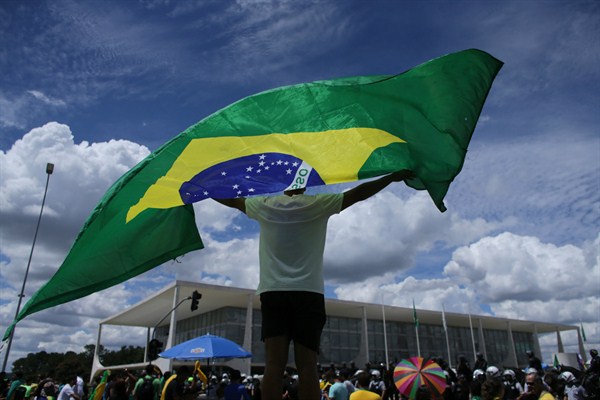Brazil is facing its most severe political crisis since its transition to democracy two and a half decades ago. Large-scale street protests; a government weakened by massive corruption scandals and unable to initiate meaningful reform; and a divided opposition, a large part of whose leadership is also beginning to be investigated, have all combined to create a crisis that Eurasia Group has called one of the top 10 global political risks in 2016.
The political turmoil cannot be understood without taking Brazil’s economic plight into consideration. Mainly triggered by President Dilma Rousseff’s financial largesse and interventionist policies, Latin America’s largest economy is in the midst of its worst-ever recession, eroding part of the progress made over the past decades, when economic growth brought millions of Brazilians up from beneath the international poverty line. Now inequality is on the rise again, and many from Brazil’s so-called new middle class risk sliding back into poverty.
The macroeconomic context matters greatly, too. Research points to a strong correlation between commodity prices, currently very low, and governments’ approval ratings in Latin America. That shows that the difficulties of left-wing governments in the region—whether the defeat of President Cristina Fernandez de Kirchner’s chosen successor in Argentina, President Evo Morales’ struggles in Bolivia, or Chavismo’s twilight in Venezuela—are not caused by a wave of conservatism, but by the end of a decade-long commodity boom that financed broad social programs and some populist enterprises. Latin Americans’ perception of democracy itself tends to suffer when global demand for commodities slows down and prices fall.

